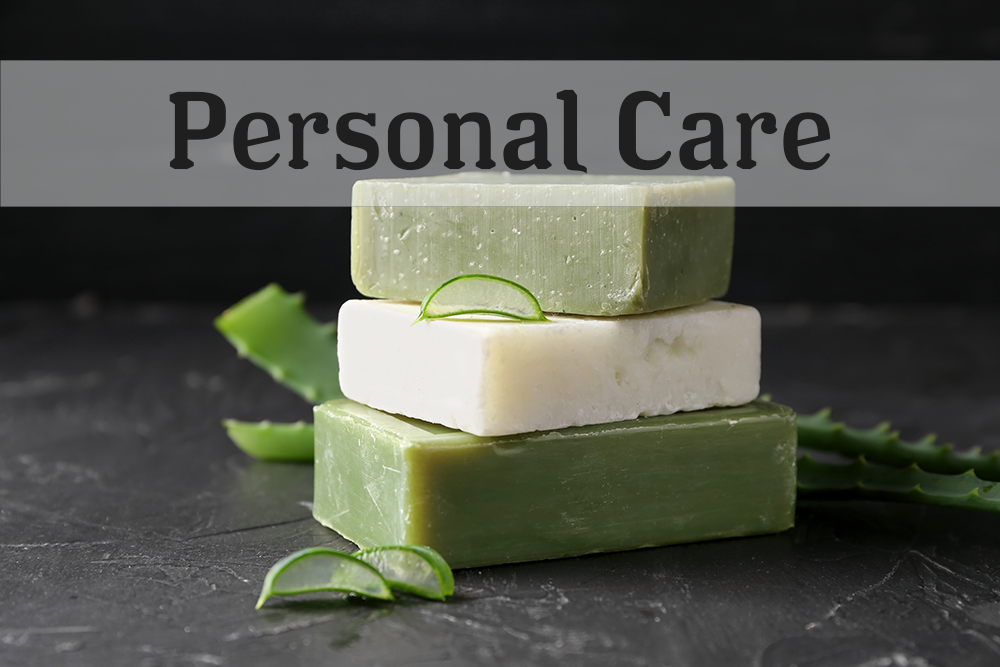In addition to food and water, stocking up on essential Personal Care items is crucial to ensure you’re prepared for a disaster or survival situation. These items should cover hygiene, medical needs, communication, and overall comfort during an emergency. Here’s a comprehensive list of personal items to consider:
Essential Personal Care items
>>>>>>><<<<<<<
Hygiene and Sanitation Supplies
>>>>>>><<<<<<<
- Toilet Paper: Stock enough to last for several weeks or months depending on the number of people in your household.
- Sanitary Items: Feminine hygiene products, adult diapers, and baby diapers if applicable.
- Soap & Hand Sanitizer: Regular bar soap and alcohol-based hand sanitizers are essential for personal hygiene.
- Toothbrush & Toothpaste: Dental hygiene supplies for each family member.
- Wet Wipes: Useful when access to water is limited, and for cleaning hands, surfaces, or even a quick body wash.
- Towels: Both regular and paper towels for cleaning purposes.
- Trash Bags: Heavy-duty garbage bags can be used for waste management and sanitation needs.
- Bleach & Disinfectants: Plain, unscented bleach for disinfecting water and surfaces (ensure it is sodium hypochlorite, not scented bleach or with added cleaners).
- Personal Care Products: Shampoo, deodorant, razors, combs, and other personal grooming essentials.
>>>>>>><<<<<<<
First Aid and Medical Supplies
>>>>>>><<<<<<<
- First Aid Kit: A comprehensive kit with bandages, antiseptic wipes, gauze, medical tape, tweezers, scissors, and splints.
- Prescription Medications: Ensure you have at least a 30-day supply of any required prescription medications.
- Over-the-Counter Medications: Pain relievers (ibuprofen, acetaminophen), antihistamines, antacids, cold medicine, and any other common treatments.
- Thermometer: Useful for monitoring fevers in case of illness.
- Bandages & Dressings: Stock up on adhesive bandages, sterile dressings, and butterfly strips for minor wounds.
- Vitamins: Multivitamins and supplements to maintain nutrition if the variety of food is limited.
- Eyewear & Contacts: If you wear glasses or contacts, have an extra pair, lens cleaner, and contact solution.
- N95 Masks: Useful for protection against dust, smoke, and airborne pathogens.
- Gloves: Disposable latex or nitrile gloves for handling potentially hazardous materials or administering first aid.
- Antibacterial Ointment: For treating cuts and preventing infections.
>>>>>>><<<<<<<
Personal Safety & Protection
>>>>>>><<<<<<<
- Emergency Whistle: To signal for help if needed.
- Pepper Spray or Self-Defense Tools: Depending on your personal security needs, these may provide peace of mind.
- Fire Extinguisher: Ensure you have an up-to-date, easily accessible fire extinguisher.
- Dust Masks or Respirators: In case of fires, debris, or poor air quality.
- Protective Clothing: Ponchos, rain gear, or even thermal blankets for warmth.
- Insect Repellent: Deet free, non-toxic, pet friendly bug spray.
>>>>>>><<<<<<<
Clothing and Bedding
>>>>>>><<<<<<<
- Extra Clothing: Include sturdy clothes suitable for your climate, especially in cold weather. Pack socks, underwear, and durable shoes.
- Thermal Blankets or Sleeping Bags: Space-saving emergency blankets and sleeping bags to keep warm.
- Sturdy Gloves: Useful for heavy tasks or during clean-up.
- Hats & Sun Protection: Wide-brimmed hats, sunscreen, and sunglasses for sun protection.
>>>>>>><<<<<<<
Communication and Lighting
>>>>>>><<<<<<<
- Flashlights & Batteries: Have multiple flashlights and plenty of spare batteries. Consider solar-powered or hand-crank flashlights.
- Battery-Powered Radio: A NOAA weather radio or AM/FM radio to stay informed about emergency broadcasts.
- Power Bank: Portable chargers or power banks for recharging mobile phones and other electronics.
- Emergency Contact List: A printed list of phone numbers and addresses for family members, local authorities, and emergency contacts.
>>>>>>><<<<<<<
Tools and Equipment
>>>>>>><<<<<<<
- Multi-Tool or Swiss Army Knife: For a variety of tasks such as cutting, opening cans, or making repairs.
- Manual Can Opener: In case the power goes out, a manual can opener is vital for accessing stored canned goods.
- Duct Tape: Useful for temporary repairs and a variety of other survival uses.
- Lighters & Waterproof Matches: For starting fires in emergencies.
- Plastic Sheeting & Tarps: Can be used to create makeshift shelters, cover broken windows, or waterproof an area.
>>>>>>><<<<<<<
Documents and Personal Identification
>>>>>>><<<<<<<
- Copies of Important Documents: Include copies of birth certificates, passports, insurance policies, and medical records. Keep these in a waterproof container.
- Cash: In small denominations, as ATMs and credit card systems may be unavailable.
- Personal Identification: ID cards, driver’s licenses, and health insurance cards.
>>>>>>><<<<<<<
Miscellaneous
>>>>>>><<<<<<<
- Entertainment Items: Books, cards, games, or other small entertainment options for both adults and children to help pass the time.
- Baby Supplies: If you have a baby, stock up on formula, baby food, diapers, wipes, and clothing.
- Pet Supplies: Don’t forget about your pets. Stock up on pet food, water, and any medications they may need.
>>>>>>><<<<<<<
Comfort Items
>>>>>>><<<<<<<
- Earplugs & Eye Masks: Useful in noisy or bright environments where rest is needed.
- Reusable Water Bottles: For hydration, especially if you’re on the move.
- Small Sewing Kit: For minor clothing repairs.
>>>>><<<<<
>>>>><<<<<
By having these personal items stocked in your survival pantry, you will be prepared for a wide range of emergency scenarios. Ensure that you periodically check expiration dates, particularly for medications and hygiene items, and update your supplies as needed. Preparedness is key to ensuring you and your family’s well-being during any disaster or crisis.
You may also want to visit our WELLNESS & NUTRITION page for more information.



